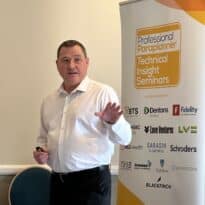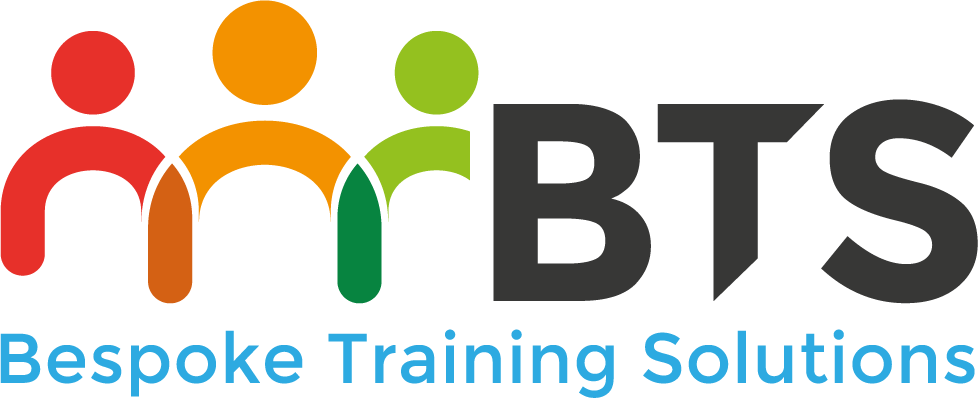Do the CII R0 exams prepare candidates for a financial planning role in the real world? asks Jeff Scholes, director, Bespoke Training Solutions
As a provider of training for the level 4 Diploma in Regulated Financial Planning, BTS often receives questions from new candidates such as: ‘how long will it take to get my diploma’, ‘how much work do I need to put into my study’, and ‘what do I need to focus on to pass the exam’.
Since the Retail Distribution Review (RDR) back in 2012 the minimum requirement for giving advice to retail clients is to have a RQF level 4 qualification, so it is no surprise that many candidates are focussed on achieving that all important exam pass. After all, the sooner the exams are passed, the sooner the individual can start to advise clients (if that is what they want to do). So, do the R0 exams prepare a candidate for a financial planning role in the real world, or are they something of a formality?
Planet exam vs the real-world financial planning
The first thing to consider here is how the potentially different worlds of study and work link together. We often hear from candidates who have tapped into the technical knowledge of a well-meaning senior colleague, only to find that the questions on the exam paper are looking for a different perspective. A common piece of study advice given to BTS R0 exam candidates is that technical knowledge alone is not usually enough to secure an exam pass. Candidates are advised to read the examining body syllabus and practise on as many exam-standard questions as possible to form an understanding of what the examiner is looking for. This advice isn’t about teaching a candidate how to pass the exam, it’s about encouraging a level of critical thinking beyond learning pages and pages of text.
Financial planning in practice
We often have conversations with previous students, to find out how their new role is progressing post-qualification and it is interesting to find out how much of what they learned when studying is relevant to their day-to-day job.
So, how relevant are technical qualifications in the real world?
Whilst newly-qualified advisers may not immediately come across a client with some gilts and need to calculate their gross redemption yield, their exam knowledge can absolutely come into its own once they are out advising real clients.
BTS were told by a now-qualified adviser (passed R06 with BTS in the April exam) that they find themself using some of the BTS study mnemonics like ‘PASTE’, ‘TWIG’ and ‘PATHETIC WINE’ in their head during client meetings to remind themselves to ask about key areas. One of our successful candidates recently reminded a more senior adviser not to forget key areas such as possible future inheritances.
We have said that technical knowledge alone won’t usually get you an exam pass, as the examiner is often looking for a particular approach to arrive at an answer. Whilst the examiner’s preferred answer can sometimes feel more ‘planet-exam’ and less ‘real-world’, there is method in this assessment technique. It allows the exam to go beyond an assessment of a candidate’s technical knowledge and look at the application of this knowledge. The R0 exams attempt to assess a candidate’s ability to respond to the different permutations of clients’ needs, a tall order for a multi-choice question paper where there has to be a definitive answer!
Is there a skills gap?
Part of the answer to this question is based on how well the R0 exams prepare new entrants to the profession to give quality advice.
Financial planning is a rapidly diversifying profession, with new entrants coming from a variety of previous roles, experiences, and academic pathways. Some candidates bring a wealth of ‘soft skills’, others have quite a bit of on-the job-learning to do. This can make for a challenging job hunt when experience plus qualifications is often on the list of employer requirements.
To develop and become proficient in any skill there are some fundamental steps that we all must go through. Simplistically, we need to understand what we mean by being ‘good’ at a particular skill and have measurable standards, see examples of the skill being carried out well, attempt to apply the skill ourselves, measure ourselves against the standards and then make any corrections to what we do. This model applies to many fields, including disciplines as wide as sport, performing arts and financial services.
The R06 exam is a good example of a qualification that is aiming to develop and assess at least the first steps in this process. The syllabus includes many examples of desired behaviours, and the exam asks candidates to write down what actions they would take in specific circumstances, but a written exam can only take skills development so far.
There is quite a bit of talk around the need to address a skills gap in newly-qualified advisers to better prepare new entrants to compete in the job market. New qualifications are emerging to top-up the skills needed in the real-world and exam bodies are continually reviewing their qualification pathways to future-proof the profession.
What can new advisers do to stay on top of their game?
Successful advisers will use all the tools available to them. This includes developing knowledge and skills, so new entrants will get a lot of benefit from sitting down, ideally with an experienced and encouraging practitioner coach, and defining exactly what skills are needed to achieve that success. The more precisely the candidate can define ‘what good looks like’ the more likely they are to be able to replicate the behaviours.
The journey to qualification is both challenging and enlightening. The subjects studied, more specifically the methods used to learn those subjects, can be helpful aide memoirs in the field. The discipline and study habits gained throughout the diploma are skills for life, and the experience of finding and using strategies that lead to exam success can be drawn upon to support future trainees within an adviser’s business. Afterall, we never stop learning.
About Bespoke Training Solutions
Bespoke Training Solutions (BTS) have been supporting regulated exams for 18 years, specialising in R0 support with outstanding candidate tracked results and feedback. Resources include digital and printed study guides, group and 1:1 training, e-Learning modules and a mobile app R0 Study Buddy which provides practice exam questions. Visit www.bespoketrainingsolutions.com to learn more on how BTS can help you on your regulated journey.






























